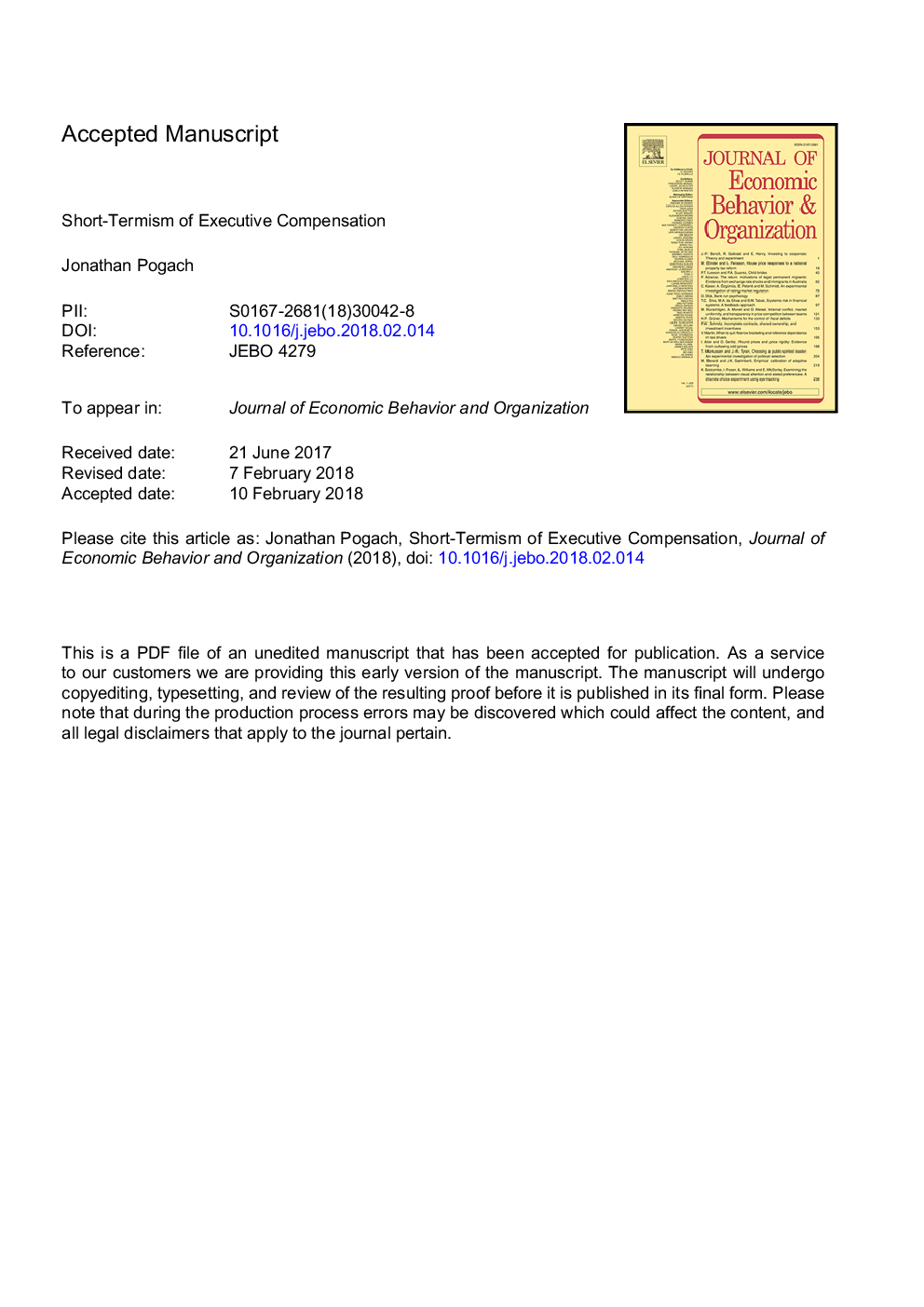| Article ID | Journal | Published Year | Pages | File Type |
|---|---|---|---|---|
| 7242616 | Journal of Economic Behavior & Organization | 2018 | 52 Pages |
Abstract
This paper presents an optimal contracting theory of short-term firm behavior. Contracts inducing short-sighted managerial behavior arise as shareholders' response to conflicting intergenerational managerial incentives. High-return projects may last longer than the tenure of managers who implement them. Consequently, inducing managers to act in the long-term interests of firms requires the alignment of incentives across multiple managers. Such action comes at greater costs than providing incentives for a single manager and leads to contracts that favor short-term behavior. Long-term firm value maximization is further impeded when only the quality of accepted projects-but not those of declined projects-is public. In that case, shareholders find it costly to induce long-term project selection among managers who can earn all information rents from short-term projects but must sacrifice information rents from long-term projects to future managers.
Keywords
Related Topics
Social Sciences and Humanities
Economics, Econometrics and Finance
Economics and Econometrics
Authors
Jonathan Pogach,
